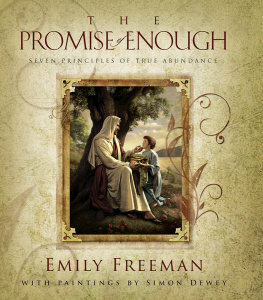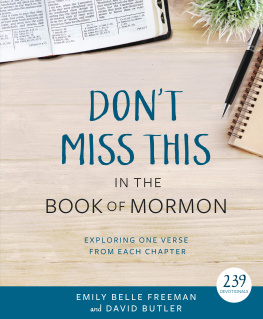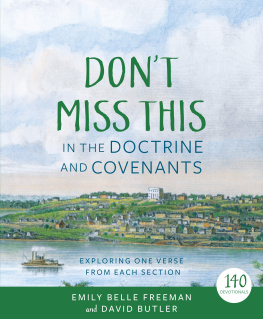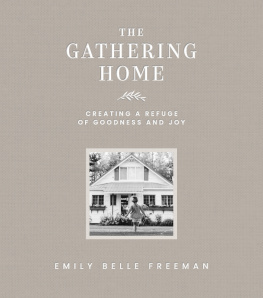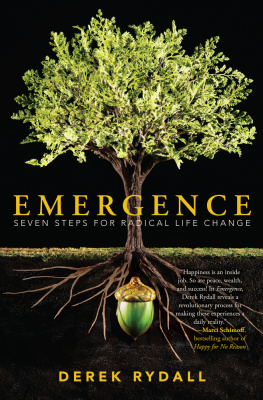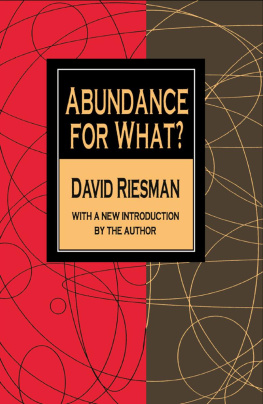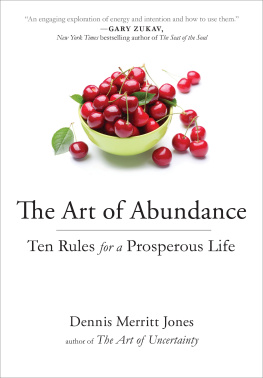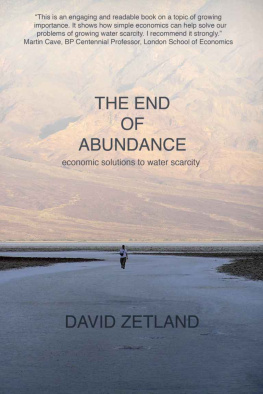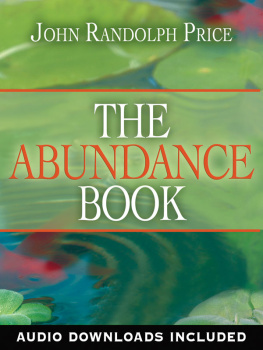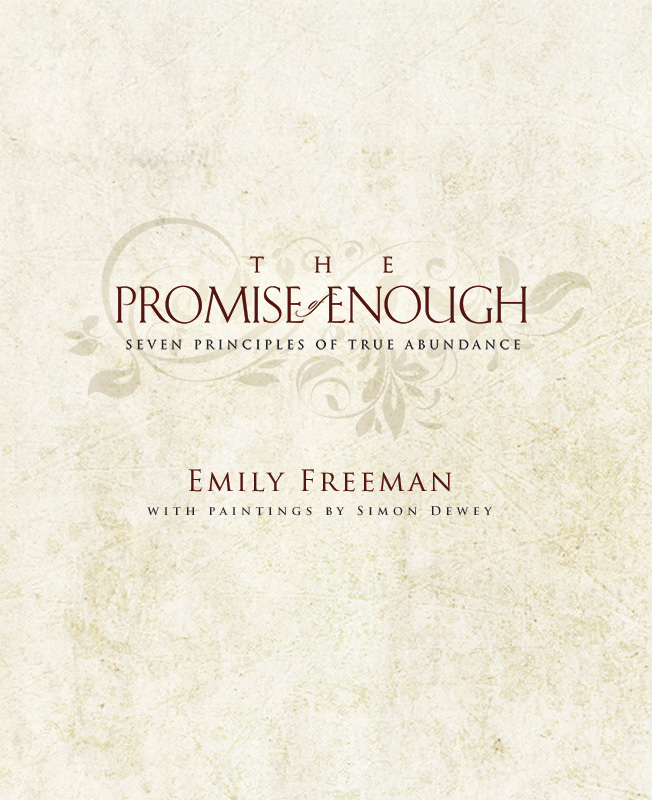2009 Emily Freeman.
All rights reserved. No part of this book may be reproduced in any form or by any means without permission in writing from the publisher, Deseret Book Company (permissions@deseretbook.com), P.O. Box 30178, Salt Lake City Utah 84130. This work is not an official publication of The Church of Jesus Christ of Latter-day Saints. The views expressed herein are the responsibility of the author and do not necessarily represent the position of the Church or of Deseret Book. Deseret Book is a registered trademark of Deseret Book Company.
Other Titles by Emily Freeman
21 Days Closer to Christ
God Bless Your Way: A Christmas Journey
The Ten Virgins
The Woman at the Well
For McKinley, an insight extraordinaire,
And JJ, an enthusiasm aficionado,
Who have taught me to embrace every last bit of
knowledge and joy life has to offer.
No one could ask for a better cheering section.
I am come that they might have life, and that they might have it more abundantly.
John 10:10
For more information about Simon Deweys artwork, visit www.altusfineart.com
Library of Congress Cataloging-in-Publication Data
Freeman, Emily, 1969
The promise of enough : seven principles of true abundance / Emily Freeman ;
illustrated by Simon Dewey.
p. cm.
Includes bibliographical references and index.
ISBN 978-1-60641-143-8 (hardbound : alk. paper)
1. Christian lifeMormon authors. I. Dewey, Simon. II. Title.
BX8656.F78 2009
248.4dc222009017923
Printed in the United States of America
Inland Graphics, Menomonee Falls, WI
10987654321
Invitation from the Author
This book is meant to be written in.
I have found that my favorite books are those that I have left a mark in. Sometimes the words are simply underlined. Other times I will place a star in the margin next to a certain line or paragraph. But, if you look carefully through my library, you will find that my favorite passages are those marked with a star and an exclamation point in the margin. It is my way of reminding myself, This is important; someday you might want to think about this again.
Sometimes I leave myself a handwritten note somewhere in the blank spaces on the page... a reminder of something Ive learned or want to remember. Then, when I have finished the book, its like I have left a part of me there. It fascinates me to return to those pages years later to see where I have come from and what I have learned. Over time the books that I have marked have become a part of me; somehow marking the page has left a marking on my heart. You will find several journal pages at the end of this book. I hope you will fill them with your thoughts and your testimony.
So, before you begin this book, may I kindly suggest that you find something to write with. Then settle into a quiet haven that allows plenty of room for thought.
Experience has taught me that somewhere between doodling and brainstorming personal discoveries are made.
True discovery begins with introspection.
Introspection requires pondering.
Pondering leads to understanding.
What we understand, we hope to remember.
To be remembered, it must be written...
Abundance.
It is what He knows best.
The principle of promise.
The underlying theme of His life.
It is the tender behind the mercy.
The unconditional behind the love.
The height, breadth, and depth behind
the understanding.
It has never been otherwise and remains
true today.
And so,
when weary souls long for the abundant life,
it is to One source they must turn.
For He is known now just as He was known
in times of old.
He is
The Giver
of every good gift.
Introduction
John 6:513
They had come for different reasons.
Some sought healing and, filled with anticipation, they came. Now, cautiously hoping, they watched the humble man moving through the crowd. With faith stirring in their souls, they waited for the opportunity to petition at the feet of Him who offered miracles.
Some came with a desire to know something of this man who taught in parables, who spoke of their traditions in unexpected ways. They came longing to hear more, to gain an understanding from Him who offered answers.
And then there were those who were aching with a sorrow that was fresh and deep. They had lost their shepherd, and now searched for another to lead them. Here was the one who John had baptized. And so with trepidation they came, clinging to shattered memories, to learn at the feet of Him who offered comfort.
Hours passed, and still they remained. Even as the sun began to set they were drawn to Him, drawn to what He offered, drawn to the Giver.
He had known they would come, just as He knew what He was about to do. The Giver had walked among them with patience and compassion, to teach them many things (Mark 6:34), and to heal those in need of healing (Luke 9:11). Finally, when the day was far spent, He turned to His disciples asking, Whence shall we buy bread, that these may eat? (John 6:5).
The unexpected question came as a surprise. The small group traveled with little provisions and money was scarce. Even if they were to offer everything they had, it would not be enough. The obvious solution was to dismiss the multitude and allow them to return to the village to find food and shelter. But this was not what He had asked of them. And so they gathered to converse. What did they have to offer? What He asked would require sacrifice. They would have to give of their own.
One of the disciples turned to the young lad. The boy had followed behind them all day, carrying a small basket containing what was to have been their supper. They were not accustomed to fine meals, and had learned to get by with the very humblest of provisions. This day, what little money they carried with them was used to purchase the poorest of breadsfive barley loaves. There had been enough left over to purchase two small, salted fish, commonly sold along the shores of Galilee. It was hardly enough for them, and the disciple could not help but ask, What are they among so many?
Carefully the lad made his way through the crowd to the place where the Giver sat. He placed the basket at His feet, and knelt. The lad was in awe of these men he traveled with, for no matter what the Giver asked, His disciples did not hesitate to obey. Even now, he watched as the disciples gathered the people into groups to prepare for the meal. Somehow these men had set aside their doubt, but he still could not help but wonder from whence the meal would come. Finally the disciples returned. The lad looked out across the great company of men, women, and children who sat scattered across the green grass. There were well over 5,000 people patiently watching the Giver who had laid out the meager provisions of bread and fish at His feet.
The lad watched in amazement as the Giver took the bread and gave thanks. Such gratitude for this simplest of foods surprised the boy. And then, breaking it into pieces, He began to hand the bread to His disciples and they, in turn, gave to the multitude, one by one, until each had received. The people ate until they were filled, as much as they would, even the small lad.
And when the meal was finished, the Giver asked His disciples to gather what remained. Even now, the miracle of it allthe giftwas beyond understanding.

